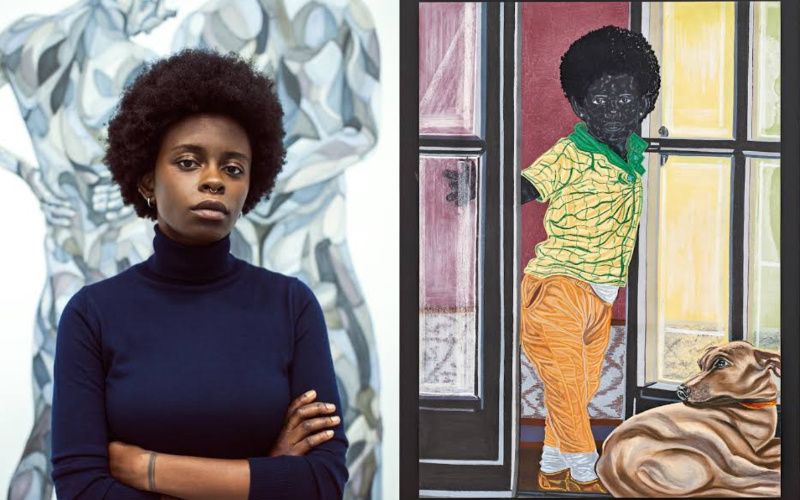Toyin Ojih Odutola is a contemporary Nigerian-American visual artist known for her vibrant multimedia drawings and works on paper.
Her distinct mark-making technique and lavish compositions rethink the category and traditions of portraiture and storytelling.
Ojih Odutola’s artwork frequently explores a wide range of themes, including socioeconomic inequality, the legacy of colonialism, queer and gender theory, notions of blackness as a visual and social symbol, and migration and dislocation experiences.
Ojih Odutola’s Early Life and Education
Ojih Odutola was born in Nigeria’s Ile-Ife in 1985 to parents who were both educators. In 1990, Toyin’s mother, Nelene Ojih, traveled to the United States with her two-year-old brother to join their father, Dr. Jamiu Ade Odutola, who was conducting research and teaching chemistry at the university in Berkeley, California. The family moved to Huntsville, Alabama in 1994 after spending four years in Berkeley, where her father was hired as an associate professor at Alabama A&M University and her mother as a nurse. Ojih Odutola is descended from both the Yoruba and the Igbo peoples, according to her paternal and maternal origins.
She participated in the Norfolk Summer Residency for Music & Art in 2007 while still a student at Connecticut’s Yale University. She graduated from the University of Alabama in Huntsville with a Bachelor of Arts in Studio Art and Communications soon after, in 2008. She graduated from California College of the Arts in San Francisco with a Master of Fine Arts in 2012.
Ojih Odutola’s Career
She debuted her first solo exhibition in New York, “(MAPS),” at Jack Shainman Gallery in 2011, while attending California College of Arts in San Francisco. A ballpoint pen was used to layer a collection of distinct black figures on decontextualized white backgrounds. She was given a new voice in the visual representation of black skin thanks to the theories underlying this series of skin as geography.
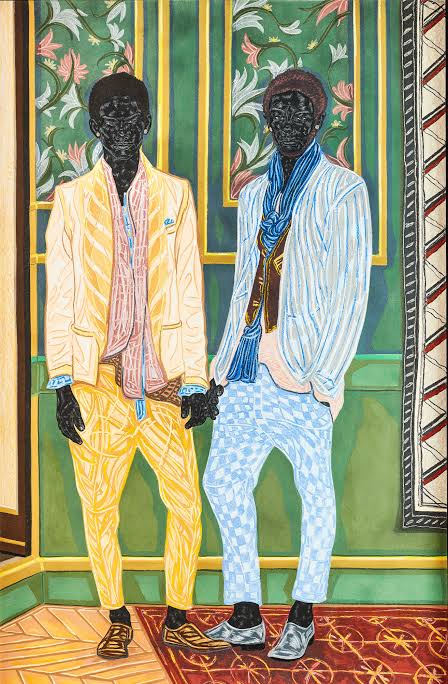
Ojih Odutola was included in the “Art & Style” category of Forbes’ 2012 list of the 30 notable people under the age of 30.
Her solo museum exhibition, “Untold Stories,” at the Contemporary Art Museum St. Louis in 2015 signaled a change in her studio approach by incorporating storytelling and text into her artwork.

She explored a new style of work during her residency at Headlands Center for the Arts in Sausalito, California, and presented “A Matter of Fact,” a solo exhibition, at the Museum of the African Diaspora in San Francisco in 2016.
On the occasion of her solo exhibition, “To Wander Determined,” at the Whitney Museum of American Art in New York, her work was the featured cover story for Juxtapoz Magazine in November 2017. The exhibition featured a colorful collection of people who were linked by a made-up story about two noble Nigerian families that were brought together by the union of their respective titled sons.
The portraits are described by Ojih Odutola as belonging to these families’ private collection and coming from various upper-class backgrounds free of colonialism. Because the portraits are fictional, the audience is encouraged to figure out what is really going on in them.
She was chosen to serve as the Lida A. Orzeck Distinguished Artist-in-Residence at Barnard College in New York for the 2017–2018 academic year.
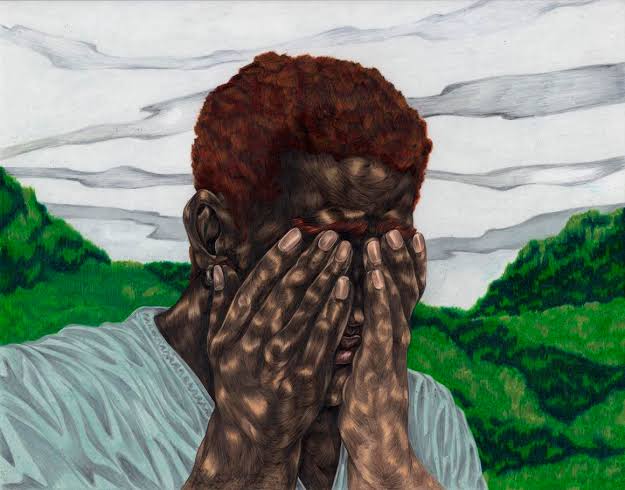
She presented “Scenes of Exchange” as a solo at the 12th edition of the international biennial Manifesta in Palermo, Italy, in 2018.
She was one of the 21 artists chosen for the Future Generation Art Prize for 2019, presented in a group exhibition at the PinchukArtCentre in Kiev, Ukraine, and later traveled to be featured in a companion exhibition for the 58th Venice Biennale in 2019. She was nominated as one of the 21 shortlisted artists in September 2018.
The National Academy of Design inducted Ojih Odutola into its 2019 National Academicians Class. Current members secretly nominate and elect a new class each year to recognize the artists’ remarkable contributions to the canon and story of American art. The lifetime honor appointment dates back to 1825.
The ambassadors’ displays of exhibits and artwork serve to preserve a 200-year-old tradition while inspiring the following generation. The National Academicians support as art ambassadors.
Her first museum solo exhibition in the United Kingdom, titled “A Countervailing Theory,” will open in August 2020 at The Curve gallery at the Barbican Centre in London. Ojih Odutola created 40 works for this commission, each depicting an ancient parable set in central Nigeria’s Jos Plateau.
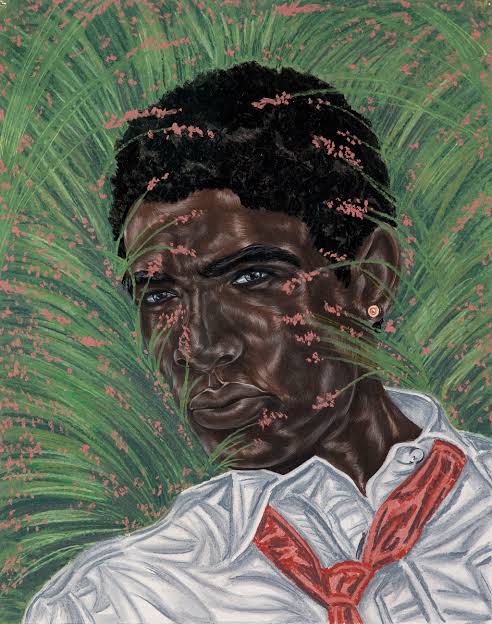
Ojih Odutola told The Guardian that the exhibition was inspired by two events: reading about ancient rock formations in central Nigeria and hearing about a German archaeologist who mistakenly attributed brass statues discovered in Nigeria to ‘Greeks from Atlantis’ because he ‘couldn’t conceive of Nigerians having the mental aptitude to create such anatomically correct and beautiful objects.’
Out of these two emerged black and white drawings that, in the artist’s words, “flip the script in every aspect.” Author Zadie Smith published an essay on the exhibition’s themes in The New Yorker, which was also included in the exhibition catalog.
Ojih Odutola’s Style and Influences
Ojih Odutola is best known for her detailed portrait drawings, which she completes entirely or primarily in black pen ink. Her recent work has included charcoal, pastel, chalk, and pencil. The artist, however, does not consider herself a portraitist; the subjects of her drawings are drawn from a variety of people.
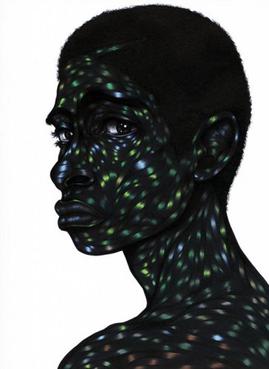
Dana Bathurst, her high school art teacher, introduced her to African-American portraiture artists like Jacob Lawrence, Elizabeth Catlett, Romare Bearden, and Barkley L. Hendricks. Comic books, Japanese manga, and anime have also influenced and inspired Ojih Odutola. While in graduate school, she also studied the works of contemporary artists such as Kerry James Marshall, Wangechi Mutu, and Julie Mehretu.

